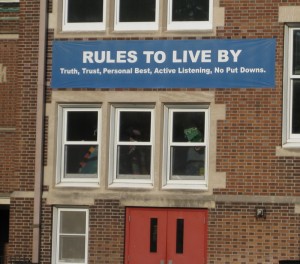The things we don’t know about climate science
Perhaps a lot of climate deniers are frustrated by scientists because they think the scientists claim to be know-it-alls. This is far from true. It is true that scientists almost uniformly agree that humans are warming the climate and that they base this conclusion upon "the extreme rate of the 20th century temperature changes and the inability of climate models to simulate such warming without including the role of greenhouse gas pollution." These are things that climate scientists do know, according to Quirin Schiermeier, author of "The Real Holes in Climate Science," published in the January 21, 2010 edition of Nature (available online only to subscribers). What don't we know? Schiermeier presents four major categories. The first is "Regional climate prediction rate." Schiermeier begins the section with this: "The sad truth of climate science is that the most crucial information is the least reliable." He indicates that researchers are struggling to develop tools to more accurately forecast regional changes in climate. People are concerned about overall heating of the planet, of course. What they are more concerned about, though is how climate change is going to affect their particular region. Unfortunately, science does not yet have the tools to make precise conclusions regarding regions or countries. This is especially true when "dealing in regions with complex typography, such as where mountains form a wall between two climatically different plains. Precipitation. Schiermeier indicates that rising global temperatures "are likely to increase evaporation and accelerate the global hydrological cycle--a change that will drive subtropical areas and increased precipitation at higher latitudes." Unfortunately, predicting precipitation is extremely difficult, especially winter precipitation. In fact, today's climate models underestimate how much precipitation has already changed. Scientists are working to improve precipitation prediction by considering additional climate variables, and including high-resolution satellite observations to check their theoretical models. [More . . . ]


